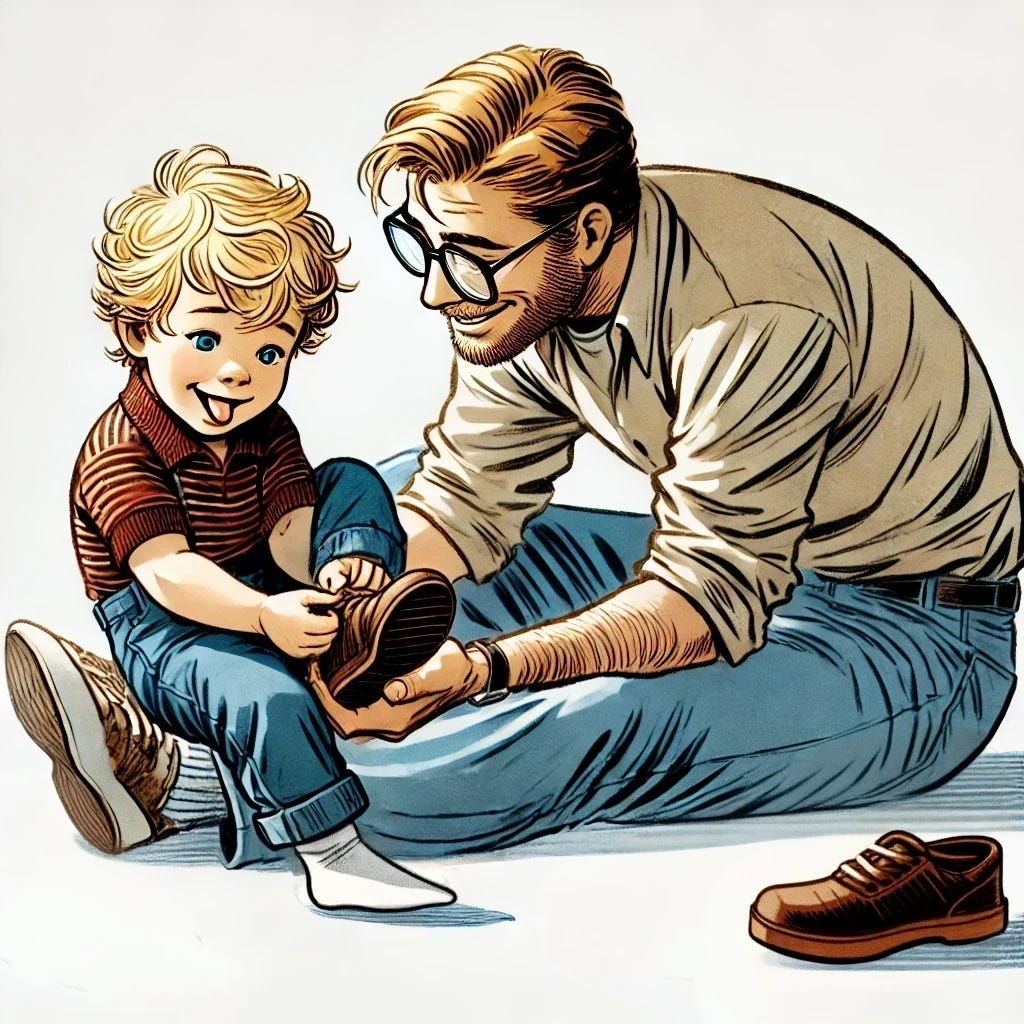The Long Game of Parenting
The goal isn't to raise kids, but to raise adults
This is the conclusion of the “Letting Our Kids Sit With Discomfort” series. Read Part 1 here and Part 2 here.
"You need to start doing some things on your own."
I can't say for certain if she actually said those words or if the moment happened exactly as I recall. But the memory has stayed with me for years. My mom, standing in front of my closet with a basket of laundry. Me, sitting up in bed, completely shocked as she tells me that I need to start putting my own laundry away.
That’s when I realized my life would be my responsibility. My memory is littered with tiny moments like this. I was born with Cerebral Palsy, and though I'm independent and able to do almost anything without help, that wasn't always the case. And, especially when I was a kid, people often assumed I couldn't do things like climb the stairs or carry things on my own. They thought they were doing a universal good by offering to do it for me, and I rarely turned the help down.
My mom, though, never wanted me to live a life where I depended on others for basic needs. She knew the world was cruel and there was always a chance that someday, I wouldn't have anyone to help me. She wanted me to learn independence, but she struggled with deciding the right moment to push me "off the cliff" so I could learn to fly.
This isn't a unique experience, even for able-bodied children and their parents. Every child faces moments where they realize that life won't always be taken care of for them. Every parent faces the question of when to step in and when to step back.
"Difficulties strengthen the mind, as labor does the body."
- Seneca
As a father and as someone who, now at 40, still grapples with the lingering effects of receiving too much assistance as a child, I wrestle with this daily. Learning independence is a process, and I still find myself navigating its challenges.
Parenting is a long game. The discomfort we allow our kids to face today becomes the strength they draw on tomorrow. Stoic philosopher Seneca wrote: "Difficulties strengthen the mind, as labor does the body."
We shouldn’t ignore our kids' struggles or withhold comfort. Instead, we should support them as they work through challenges rather than removing them entirely.
As parents, our instinct is to step in and make things easier. But childhood frustrations—lost toys, bedtime struggles, regressions—prepare them for the real challenges ahead. The key isn’t to remove struggles but to give them the tools to overcome them.
As they grow, the stakes rise—friendship troubles, failed tests, heartbreak—but the principle remains. Our tendency might be to cushion the blow by reassuring them that they don't deserve this, that someone else is to blame, that they don't need to change, and that the world does. But if we give in to this impulse, we rob our kids of fuel for their inner fire—the fire that can push them through obstacles and send them bursting out the other side stronger and more self-assured.
Looking back, my parents did their best to balance support with fostering independence. My mom, at times, could be too soft. My dad was sometimes too hard. I aim for the middle with my own kids, though my wife sometimes calls me out, and I catch myself being a little harder than is probably necessary on a four-year-old. Balance and consistency are essential in parenting. Kids thrive when they know what to expect—when rules don’t change depending on a parent's mood, and when they can rely on a steady approach to both discipline and support. No matter the level of misfortune they experience, whether it's a ruined LEGO masterpiece or getting fired from their first job, it's never easy to let them sit with discomfort. However, "the job of a good parent," Ryan Holiday writes in his book The Daily Dad, "is to make their child’s life good, not easy."



